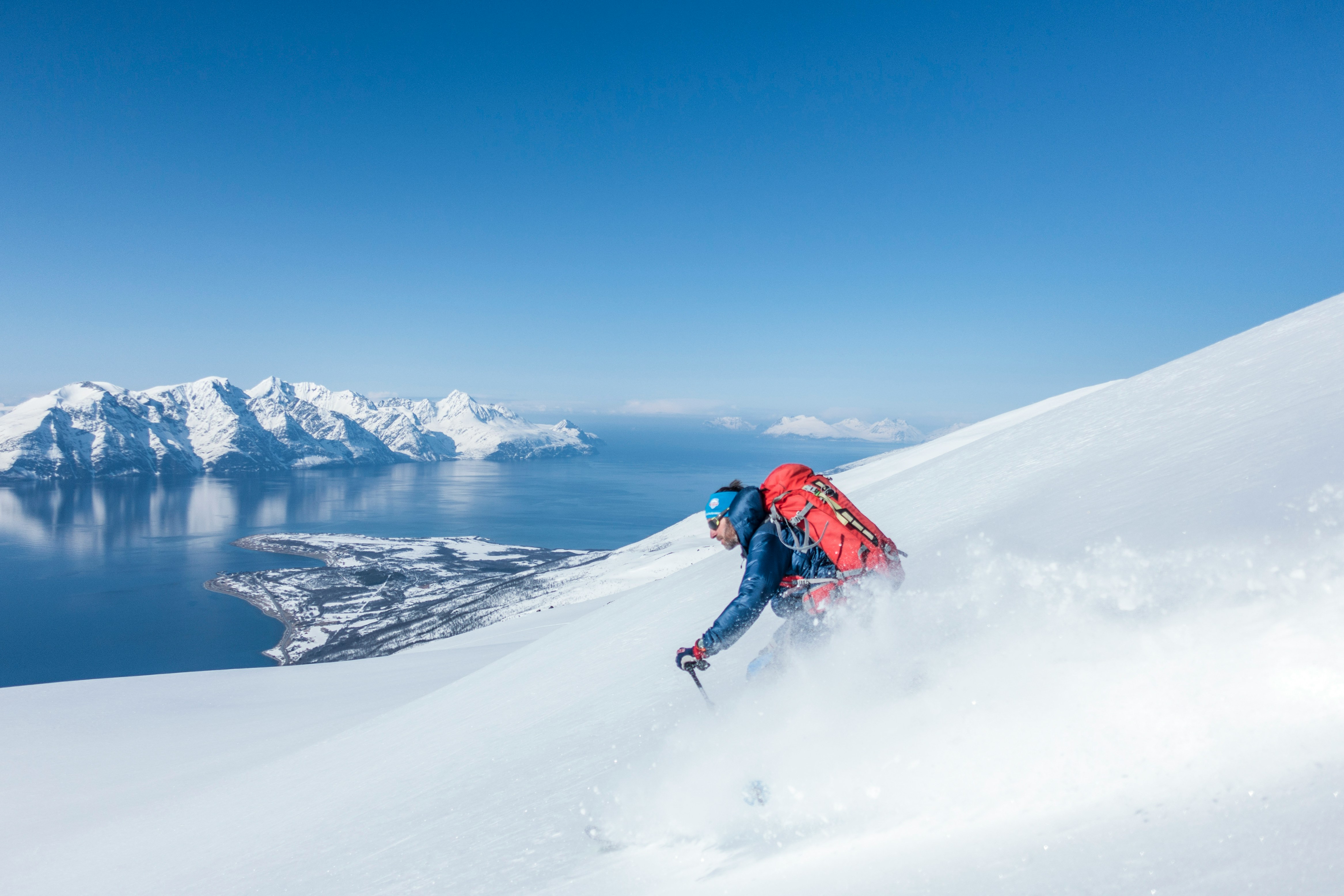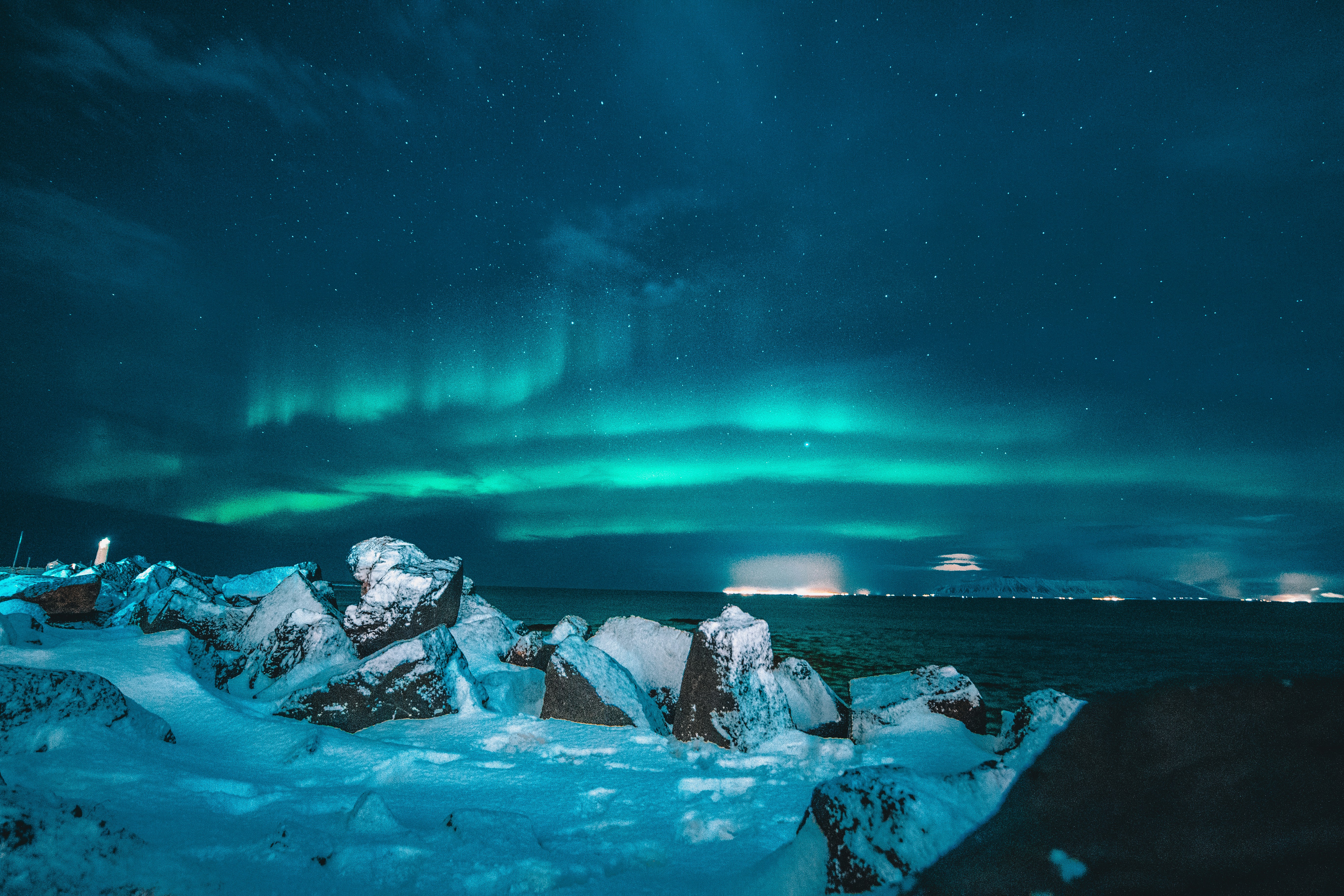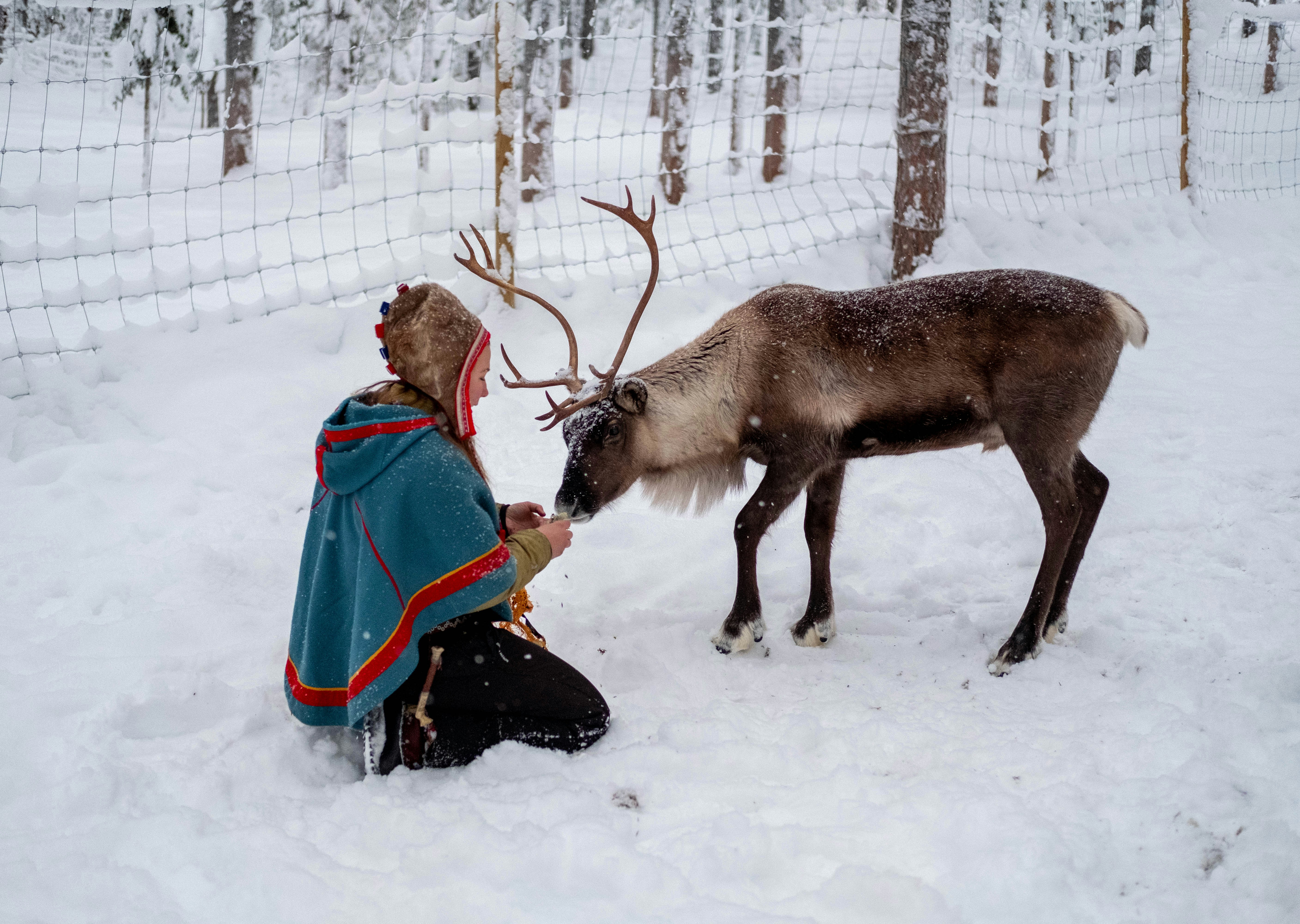Dog Sledding Adventures in Lyngen: Ultimate Arctic Experience Guide
Experience the thrill of dog sledding through Lyngen's pristine Arctic wilderness. Complete guide to husky tours, winter adventures, and authentic mushing experiences.
Dog Sledding Adventures in Lyngen: Ultimate Arctic Experience Guide
Few experiences capture the essence of Arctic adventure like dog sledding through the pristine wilderness of Lyngen Peninsula. The ancient partnership between humans and Arctic dogs comes alive as you glide silently across snow-covered landscapes, guided by powerful huskies bred for endurance and enthusiasm in the harsh northern climate.
The Magic of Dog Sledding
A Timeless Arctic Tradition
For thousands of years, indigenous peoples of the Arctic have relied on sled dogs for transportation across vast frozen landscapes. This relationship between human and canine represents one of humanity's most successful partnerships, combining mutual trust, respect, and shared adventure in some of Earth's most challenging environments.
Why Dog Sledding in Lyngen?
- Pristine Wilderness: Untouched Arctic landscapes perfect for sledding
- Traditional Routes: Historic paths used by indigenous peoples
- Varied Terrain: From frozen fjords to mountain valleys
- Professional Operations: Expert mushers with decades of experience
- Authentic Experience: Real working sled dogs, not tourist attractions
Meet the Huskies
Arctic Sled Dog Breeds
Alaskan Huskies form the backbone of most Lyngen sledding operations:
- Purpose-Bred: Selected for endurance, speed, and temperament
- Weather Resistance: Double coats protecting to -40°C
- Pack Mentality: Strong social bonds and teamwork instincts
- Eager Athletes: Born to run with incredible enthusiasm
Siberian Huskies bring distinctive characteristics:
- Striking Appearance: Piercing blue eyes and distinctive markings
- Compact Build: Efficient muscle-to-weight ratio for endurance
- Cold Tolerance: Exceptional adaptation to extreme temperatures
- Friendly Nature: Gentle temperament ideal for visitor interactions
Sled Dog Care and Training
Daily Life of Racing Huskies:
- Exercise Requirements: 20+ kilometers daily during active season
- Nutrition: High-protein diets optimized for Arctic conditions
- Health Monitoring: Regular veterinary care and fitness assessments
- Socialization: Careful pack management and human interaction
Training Progression:
- Puppy Development: Early socialization and basic commands
- Yearling Training: Introduction to harness and simple runs
- Adult Conditioning: Endurance building and team integration
- Veteran Roles: Experienced leaders guiding younger dogs
Types of Dog Sledding Experiences
Half-Day Tours (3-4 Hours)
Perfect introduction to dog sledding for first-time mushers:
- Duration: 2-hour sledding with instruction and kennel visit
- Distance: 15-20 kilometers through scenic valleys
- Group Size: Maximum 8 participants
- Difficulty: Beginner-friendly with basic instruction
- Includes: Warm clothing, hot beverages, and traditional lunch
Full-Day Adventures (6-8 Hours)
Comprehensive dog sledding experience for serious adventurers:
- Duration: 4-5 hours on trails with extended wilderness time
- Distance: 40-60 kilometers through varied terrain
- Leadership: Learn to drive your own team
- Wilderness Skills: Fire-making, navigation, and Arctic survival
- Lunch: Prepared outdoors over open fire
Multi-Day Expeditions (2-7 Days)
Ultimate Arctic adventure for experienced outdoor enthusiasts:
- Wilderness Camping: Sleep in traditional Sami tents (lavvo)
- Remote Locations: Access pristine areas impossible to reach otherwise
- Mushing Skills: Develop genuine sledding and dog handling abilities
- Cultural Immersion: Learn traditional Arctic survival techniques
- Photography: Capture stunning Arctic landscapes and action shots
Northern Lights Dog Sledding
Combine aurora viewing with dog sledding for magical evening adventures:
- Timing: November through March evening departures
- Duration: 3-4 hours including aurora watching time
- Experience: Silent wilderness travel perfect for aurora photography
- Warmth: Hot drinks and warm clothing provided
- Success Rate: High probability of aurora sightings in optimal conditions
What to Expect on Your Adventure
Pre-Departure Preparation
Safety Briefing:
- Proper clothing and equipment orientation
- Basic mushing commands and techniques
- Dog behavior and interaction guidelines
- Emergency procedures and communication protocols
Meet Your Team:
- Introduction to individual dogs and their personalities
- Harness fitting and sled preparation
- Practice with steering and braking techniques
- Understanding voice commands and body language
On the Trail Experience
Leading Your Team:
- Voice Commands: "Gee" (right), "Haw" (left), "Whoa" (stop)
- Body Position: Balance and weight distribution techniques
- Brake Usage: Snow brake operation and emergency stopping
- Reading Dogs: Understanding team dynamics and individual needs
Trail Conditions:
- Packed Snow: Groomed trails for smooth, fast travel
- Powder Snow: Deep snow requiring more energy and skill
- Ice Sections: Requires careful speed and brake management
- Varied Terrain: Climbs, descents, and technical sections
Seasonal Considerations
Peak Season (December-March)
Optimal Conditions:
- Snow Coverage: Reliable deep snow for excellent sledding
- Daylight: Limited hours create atmospheric lighting
- Temperature: -10°C to -25°C ideal for dogs and equipment
- Aurora Opportunities: Dark nights perfect for northern lights viewing
Extended Season (November & April)
Shoulder Season Benefits:
- Fewer Crowds: More intimate experiences with smaller groups
- Unique Lighting: Beautiful sunrise/sunset colors
- Mild Weather: Comfortable temperatures for extended tours
- Wildlife Activity: Increased chances of reindeer and bird sightings
Safety and Preparation
What to Wear
Layering System:
- Base Layer: Merino wool or synthetic moisture-wicking materials
- Insulation Layer: Down or synthetic insulation for warmth
- Outer Shell: Windproof and waterproof protection
- Extremities: Insulated boots, mittens, and warm hat essential
Provided Equipment:
- Arctic-rated overalls and boots
- Insulated mittens and warm hats
- Safety helmets for technical terrain
- Emergency communication devices
Physical Requirements
Fitness Level:
- Basic Fitness: Ability to stand for 2-4 hours with brief breaks
- Balance: Comfortable maintaining position on moving sled
- Strength: Sufficient upper body strength for steering and braking
- Endurance: Stamina for cold weather outdoor activity
Age Considerations:
- Minimum Age: Typically 8+ years for half-day tours
- Teen Programs: Specialized instruction for young mushers
- Senior Options: Modified experiences for older participants
- Family Tours: Designed for multi-generational groups
Professional Dog Sledding Operations
Choosing Quality Operators
What to Look For:
- Licensed Guides: Certified wilderness and mushing instructors
- Healthy Dogs: Well-cared-for animals with veterinary oversight
- Safety Standards: Comprehensive emergency protocols and equipment
- Small Groups: Maximum 6-8 participants for personalized attention
- Environmental Ethics: Sustainable practices and wilderness respect
Questions to Ask:
- How long have you been operating in this location?
- What is your guide-to-participant ratio?
- How do you ensure dog welfare and health?
- What safety equipment and protocols do you maintain?
- What happens in case of severe weather or emergencies?
Dog Sledding Photography
Capturing the Experience
Action Photography:
- Fast Shutter: 1/500s+ to freeze motion and snow spray
- Continuous Focus: Track moving sleds and dogs
- Burst Mode: Capture sequences of jumping and running
- Wide Angles: Show team dynamics and landscape context
Portrait Photography:
- Dog Personalities: Individual character shots of team members
- Human Connection: Interactions between mushers and dogs
- Detail Shots: Harnesses, equipment, and traditional gear
- Environmental Context: Teams against dramatic Arctic landscapes
Cultural and Historical Significance
Indigenous Heritage
Dog sledding represents thousands of years of Arctic survival knowledge:
- Inuit Traditions: Essential transportation across frozen landscapes
- Sami Heritage: Reindeer herding supplemented by dog teams
- Modern Continuity: Traditional skills preserved through tourism
- Cultural Respect: Honoring indigenous knowledge and practices
Conservation and Education
Environmental Awareness:
- Minimal Impact: Dog sledding produces no emissions or noise pollution
- Wildlife Respect: Teams trained to avoid disturbing wild animals
- Trail Maintenance: Sustainable path use and habitat protection
- Education Programs: Teaching Arctic ecology and conservation
Planning Your Dog Sledding Adventure
Booking Considerations
Advance Planning:
- Popular Times: Book 2-3 months ahead for peak season (December-February)
- Weather Flexibility: Allow extra days for weather-dependent activities
- Group Size: Private tours available for special occasions
- Combination Packages: Often combined with aurora tours or accommodation
What's Typically Included:
- Professional instruction and guiding
- All necessary warm clothing and safety equipment
- Hot beverages and traditional Arctic meals
- Transportation to/from sledding locations
- Photography opportunities and basic instruction
Weather Contingencies
Tour Modifications:
- Extreme Cold: Tours may be shortened or modified for safety
- High Winds: Alternative routes or indoor activities provided
- Poor Visibility: Enhanced safety measures and adjusted itineraries
- Rain/Thaw: Cancellation with full refund or rescheduling options
Beyond the Trail
Kennel Visits and Education
Many operations offer comprehensive kennel tours:
- Breeding Programs: Learn about sled dog genetics and development
- Training Methods: Observe professional conditioning techniques
- Dog Care: Understand nutrition, health, and welfare practices
- Handler Interaction: Meet professional mushers and their stories
Competitive Mushing
For serious enthusiasts, explore the world of sled dog racing:
- Local Races: Observe regional competitions and time trials
- Training Participation: Advanced programs for developing mushers
- Equipment Education: Sleds, harnesses, and racing gear
- Professional Development: Opportunities to learn from champion mushers
The call of the Arctic wilderness, the rhythmic breathing of eager huskies, and the whisper of runners across pristine snow create an experience that connects visitors to both the natural world and the rich cultural heritage of the North. Dog sledding in Lyngen Peninsula offers more than adventure—it provides authentic connection to the timeless partnership between humans and animals that has defined Arctic survival for millennia.
Answer the call of the wild with unforgettable dog sledding adventures from Lyngen Seaside, where pristine Arctic wilderness and expert guides create the perfect setting for your mushing dreams to come true.


